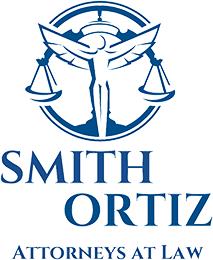Chapter 7 allows you to discharge your unsecured consumer debt. These debts include credit cards, utility bills, medical bills, personal loans, and in some cases, older tax debt. There are bankruptcy exemptions in Illinois that allow you to keep a home, cars and other items up to a certain value. Every case is different, and we encourage you to meet with us so we can review your individual situation.

Common Questions About Bankruptcy
Bankruptcy FAQ
Common Questions About Bankruptcy
We often hear similar questions about filing for bankruptcy, and we have gathered together some of these questions and provided general answers for you. If you have specific questions about your case, connect with our legal team directly and speak with our lawyer. Our goal is to bring your financial difficulties to an end.
For a more in-depth explanation of certain aspects of bankruptcy, follow the links below:

Bankruptcy FAQ
-
Many people are eligible for Chapter 7, the form of bankruptcy in which you have the ability to discharge certain debts. In order to qualify, you must complete a test called the "means test" which measures your income against a median income for your size of household. The means test should be filled out with the help of our firm, as there are many types of deductions and exemptions you may not know about. If you don't qualify for Chapter 7, you can convert your filing to a Chapter 13, or you may decide that this is the form of bankruptcy that would best work in your situation. Chapter 13 bankruptcy is often the best choice for those who do not want to lose their home through foreclosure, have a co-signer on a mortgage or make more than the state's allowable median income. In either case, our firm can help.
-
Yes. It is important, however, that you act quickly. Foreclosure proceedings can move ahead quickly and you could lose your right to stay in the home if immediate legal action is not taken. Each case is different, and how we can help you will be based upon your personal financial situation. There are many legal routes to stop foreclosure. These include reviewing the foreclosure documents for any errors or fraud, negotiating with your lender and seeking forbearance, negotiating new terms for your mortgage with your lender, or filing for bankruptcy so you are free from debt and can afford to keep up your payments. We would like to see your mortgage documents so we can determine the best way to move forward.
-
If you file for Chapter 7, the process can be completed in about 4 months. If you file for Chapter 13, you will be paying off your late payments over a 3 - 5 year period. These are very different forms of bankruptcy, and making a decision about whether you should file Chapter 7 or Chapter 13 will be based upon your current financial situation, and your personal goals about how you want to solve your financial problems, as well as your level of income and the amount of disposable income you have. We can help you to quickly determine the best strategy for your individual situation.
-


